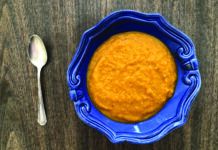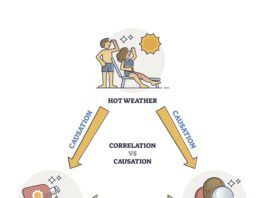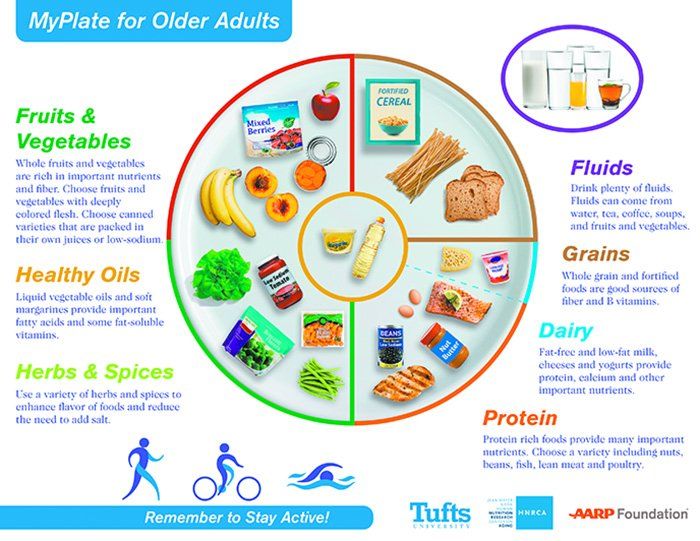Are You Getting Enough Fiber?
An important nutrient for reaching old age free of disease and disability might surprise you. According to a new Australian study, it's dietary fiber - a nutrient that, by definition, you don't even digest. In its path through your body, however, fiber is associated with reduced risk of cardiovascular disease, type 2 diabetes and some cancers.
Top 10 Healthy Vegetables You May Be Missing Out On
Bored with broccoli? Had it up to here with green beans and asparagus? Seen enough carrots and peas to last a lifetime? Maybe you need to branch out a little in the produce aisle."Some often-overlooked vegetables deserve a second glance for their nutritional benefits," says Jeffrey B. Blumberg, PhD, Tufts professor and senior scientist at the HNRCA Antioxidants Research Laboratory. He and Helen M. Rasmussen, PhD, RD, a Friedman School instructor and senior research dietitian at the HNRCA, have put together a list of 10 nutritious veggies too often omitted from grocery carts.
Eat Healthy, Not Guilty
If you think food that tastes good can't possibly be good for you, or if you feel guilty about enjoying a meal, it might be time to hit the reset button on your attitudes toward eating and nutrition. While it's smart to pay attention to what's in your food, todays culture of information clutter can make it difficult to sort out facts from fads. Once you start worrying about what you need to avoid at every meal, food can morph from enjoyment to enemy.
What is the Right Menu to Control Hypertension?
If you're worried about high blood pressure, a new systematic review of scientific evidence has good news: Changing your diet really can make a difference. Not surprisingly, the most effective diet for reducing hypertension was one designed specifically for that purpose - the Dietary Approaches to Stop Hypertension (DASH) plan. But other interventions, including cutting salt and calories, also were associated with blood-pressure benefits.
Think Before You Throw Out Healthy Food
Have you ever looked at a "sell by" or "best if used by" date on a food container, checked the calendar, and thrown out something because it had "expired"? Youre part of a $165 billion a year problem. About 40% of Americas food gets wasted, much of it because of a confusing patchwork of state laws that make people think food thats still safe to eat should be trashed.
Drink Up to Stay Healthy and Hydrated This Summer
Every cell in your body needs water to function. Water transports nutrients and oxygen throughout the body, and carries away waste materials. Water makes up most of your body, ranging from about 75% of body weight in infancy to 55% of body weight at older ages. Your brain and heart are almost three-quarters water, your muscles and kidneys are almost 80% water, and even your bones are about 30% water.
Updated Nutrition for Older Adults
If you've got your AARP card but you're still eating the way you did in your 20s, it's time for your diet to act your age. While most nutritional guidance is "ageless," you do need to make some adjustments to fit the changing needs of your aging body.
2015 Dietary Guidelines for Americans: The Good, the Bad and the Ugly
[IMGCAP(1)] Earlier this year, the federal government released the new Dietary Guidelines for Americans (DGAs). (See our March Special Report.) As a cardiologist, public-health advocate and nutrition scientist, I see a lot of good in the DGAs. First, the DGAs emphasize healthful eating patterns and foods. This is an advance over past guidelines, which focused more on isolated nutrient targets. Modern nutrition science tells us that, for preventing major diseases like obesity, diabetes, heart disease and cancers, its…
Secrets of Uncle Sams Nutrition Prescription
Every five years, your Uncle Sam rounds up the latest scientific evidence about nutrition and serves up advice about what to eat and drink for better health. The resulting Dietary Guidelines for Americans (DGA) - whose eighth edition was released in January - provides basic guidance to the American public about healthy eating patterns and shapes nutrition education programs.
Smart Supermarket Seafood Shopping
When it comes to planning your meals, it's hard to beat seafood as a nutritional powerhouse. Seafood is rich in protein and other important nutrients. Prepared right - without frying, breading, tubs of butter or caloric sauces - it delivers these nutritional benefits without a lot of calories. Many varieties also contain heart-healthy omega-3 fatty acids.





























